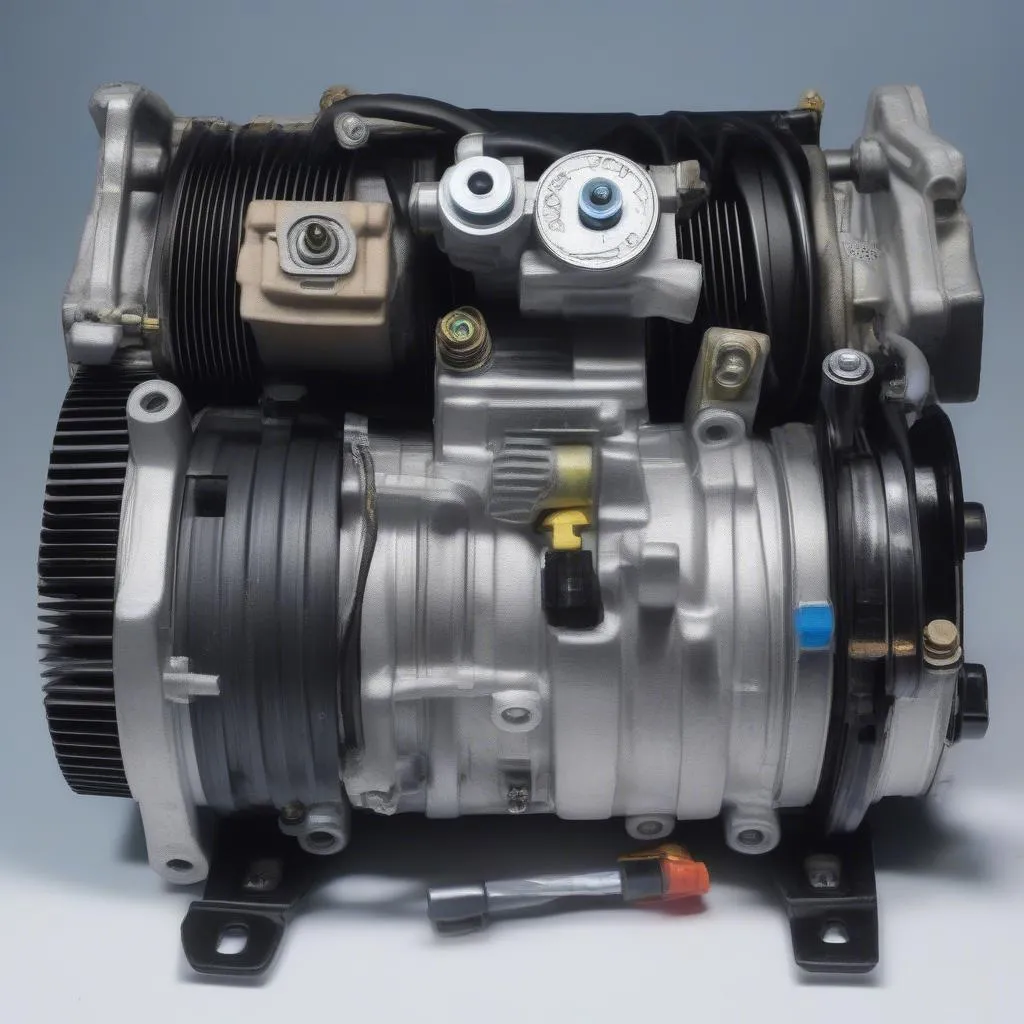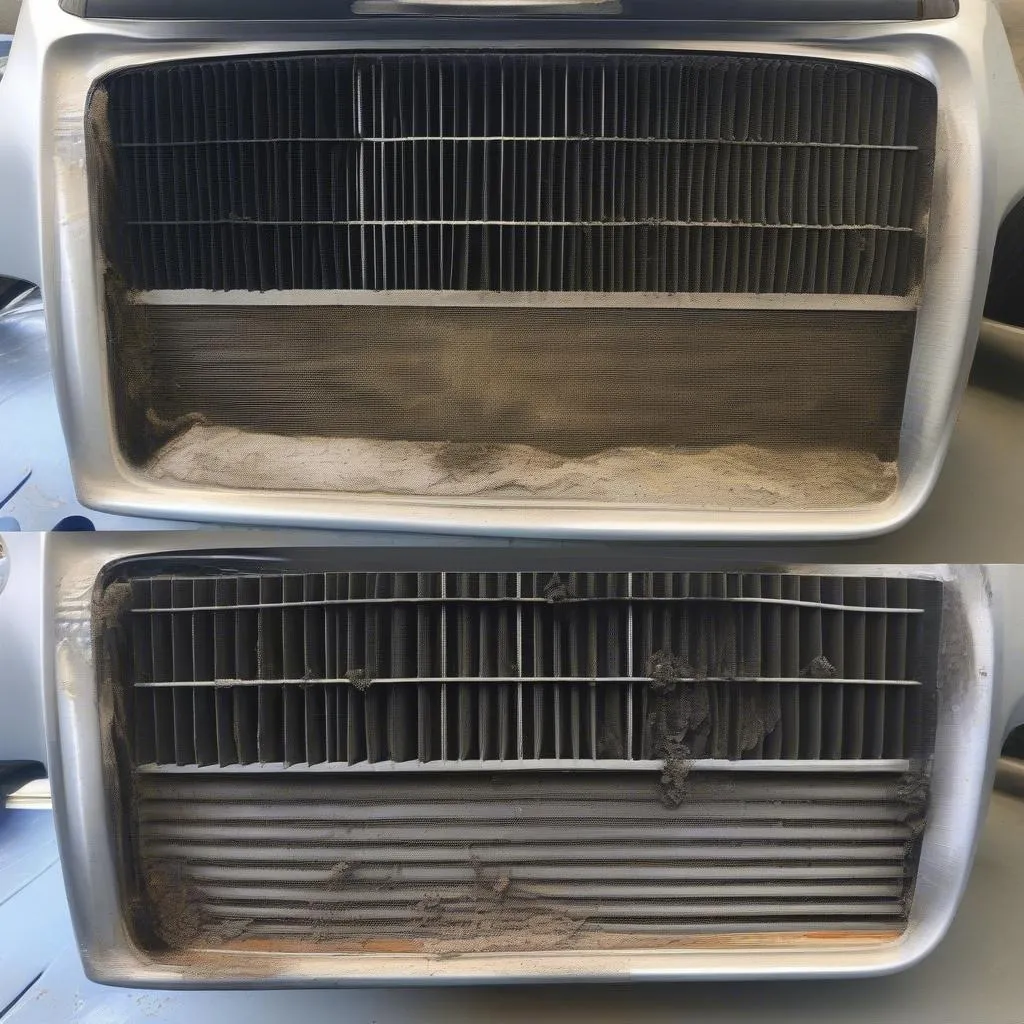A malfunctioning AC system in your Mercedes-Benz can make driving unbearable, especially during scorching summers. While Mercedes vehicles are renowned for their luxury and performance, AC issues can still arise. This guide will provide an in-depth look at common Mercedes AC problems, how to diagnose them, and potential solutions to keep you cool and comfortable behind the wheel.
Common Causes of Mercedes AC Problems
Before jumping into fixes, understanding the root causes is essential. Here are some common culprits behind Mercedes AC woes:
- Refrigerant Leak: The most common AC issue across most car brands, including Mercedes. A leak can cause a gradual decline in cooling efficiency.
- Faulty Compressor: The compressor is the heart of your AC system, responsible for pressurizing and circulating the refrigerant. A failing compressor can lead to inadequate cooling or complete AC failure.
- Electrical Issues: Malfunctions in wiring, fuses, relays, or sensors can disrupt the electrical signals controlling the AC system, leading to operational problems.
- Clogged Condenser: Located at the front of your Mercedes, the condenser cools the refrigerant. A buildup of dirt, debris, and bugs can restrict airflow, reducing cooling efficiency.
- Evaporator Core Problems: Situated inside the dashboard, the evaporator core absorbs heat from the cabin air. If it gets clogged or develops leaks, your AC’s performance will suffer.
Recognizing the Signs of AC Trouble
Early detection can save you from major headaches down the road. Here are some telltale signs that your Mercedes AC might need attention:
- Weak Airflow: Noticeably reduced airflow from the vents even at the highest fan setting.
- Warm Air Instead of Cold: This indicates a problem with refrigerant circulation or cooling.
- Unusual Noises: Clicking, hissing, or grinding sounds from the dashboard or engine bay when the AC is on.
- Foul Odors: Musty or moldy smells coming from the vents can indicate a problem with the evaporator core or drain.
Essential Tools for Mercedes AC Diagnosis and Repair
Before attempting any repairs, it’s crucial to properly diagnose the issue. Here are some tools that might be needed:
- OBD-II Scanner: To read diagnostic trouble codes related to the AC system.
- Refrigerant Leak Detector: To pinpoint refrigerant leaks in the system.
- Manifold Gauge Set: To check refrigerant pressure and identify system issues.
- Thermometer: To measure air temperature coming out of the vents.
- Basic Hand Tools: Screwdrivers, wrenches, pliers, etc., for component access and replacement.
Troubleshooting and Repairing Mercedes AC Problems
Important: AC repairs can be complex and potentially dangerous due to high-pressure refrigerant. Unless you have experience working with automotive AC systems, it’s generally recommended to consult a qualified Mercedes-Benz technician for proper diagnosis and repair.
However, for the mechanically inclined, here’s a general approach to troubleshooting common issues:
- Check for Refrigerant Leaks: Use a leak detector or soapy water solution to inspect AC components and connections for leaks. If a leak is detected, it needs to be repaired before recharging the system with refrigerant.
- Inspect the Compressor: Check for unusual noises, vibrations, or signs of damage. If the compressor clutch is not engaging, check the electrical connections and fuses.
- Examine the Condenser: Ensure it’s clean and free of obstructions. Straighten any bent fins carefully and use a condenser cleaner to remove dirt and debris.
- Verify Electrical Components: Check fuses, relays, wiring harnesses, and connectors for any signs of damage, corrosion, or loose connections.
- Consider the Evaporator Core: Accessing this component is more involved and often requires dashboard removal. If you suspect an evaporator core issue, it’s best to seek professional help.
 Mercedes AC Compressor
Mercedes AC Compressor
Frequently Asked Questions About Mercedes AC Fix
Q: How often should I service my Mercedes AC system?
A: It’s generally recommended to have your AC system inspected and serviced every 1-2 years or as part of your regular maintenance schedule. This can help prevent small issues from escalating into major problems.
Q: Can I use any refrigerant in my Mercedes AC system?
A: No, using the incorrect refrigerant type can damage your AC system. Consult your owner’s manual or a qualified technician to determine the correct refrigerant for your specific Mercedes model.
Q: Can I diagnose AC problems myself using an OBD-II scanner?
A: While an OBD-II scanner can read some basic AC-related codes, it may not provide a complete picture of the problem. More advanced diagnostic tools might be necessary for accurate troubleshooting.
 Cleaning a Mercedes AC Condenser
Cleaning a Mercedes AC Condenser
Cardiagtech: Your Partner in Mercedes Diagnostics
For those looking for reliable and professional assistance with Mercedes diagnostics and repairs, CARDIAGTECH offers a range of products designed to streamline the process. From advanced OBD-II scanners to specialized software, Cardiagtech can help you keep your Mercedes running smoothly.
Conclusion
Maintaining a properly functioning AC system is essential for a comfortable and enjoyable driving experience, especially in a luxury vehicle like a Mercedes-Benz. By understanding the common causes of AC problems, recognizing early warning signs, and following proper diagnostic and repair procedures, you can keep your Mercedes cool and comfortable even on the hottest days.
Remember, if you’re ever unsure about tackling an AC repair yourself, don’t hesitate to consult a qualified Mercedes-Benz technician to ensure the job is done right.

